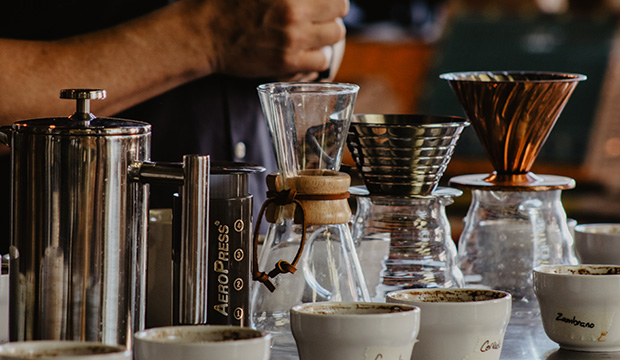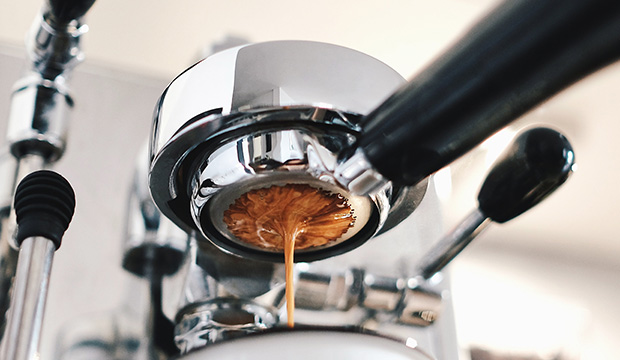 Espresso machine
Espresso machine
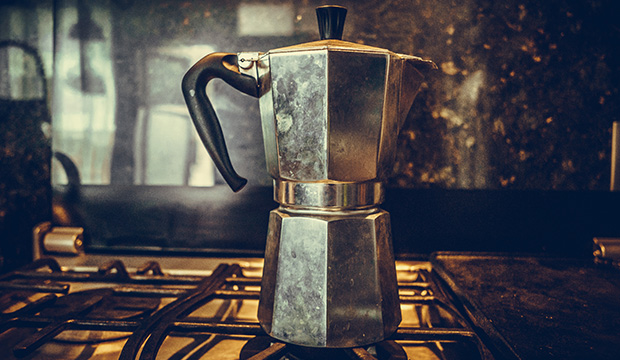 Moka pot
Moka pot
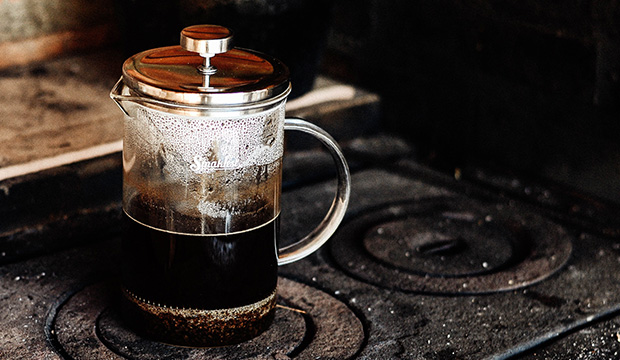 French Press
French Press
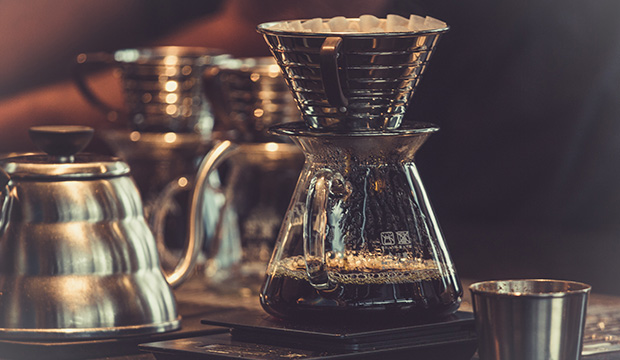 Filter coffee maker
Filter coffee maker
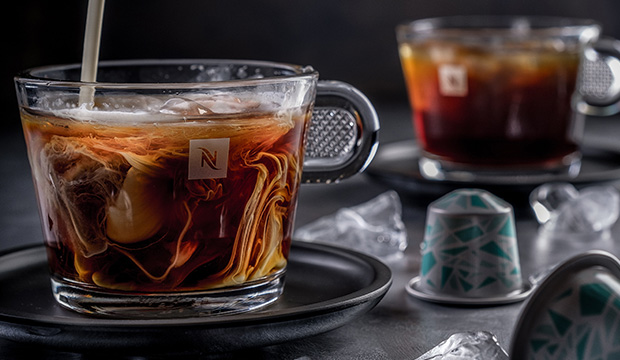 Capsule machine
Capsule machine
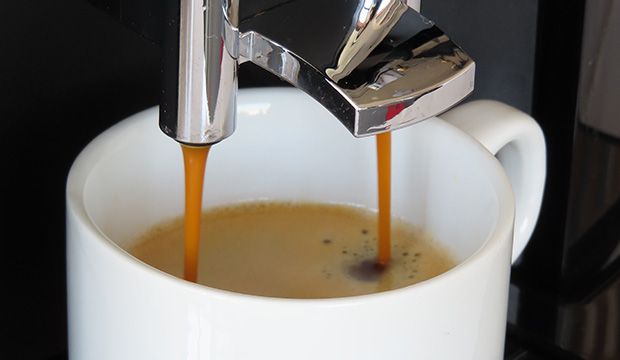 ESE Pods machine
ESE Pods machine
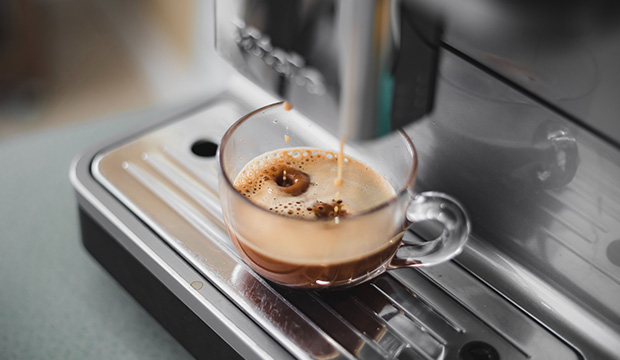 Automatic machine
Automatic machine

3-5 Workdays Article No. 1284
Aroma(s) : Chocolaty, Malty
Article No. 1284

3-5 Workdays Article No. 1437
Aroma(s) : Chocolaty, Floral
Article No. 1437

3-5 Workdays Article No. 1724
Aroma(s) : Chocolaty, Floral
Article No. 1724

3-5 Workdays Article No. 1570
Aroma(s) : Nutty, Malty
Article No. 1570

3-5 Workdays Article No. 1150
Aroma(s) : Chocolaty, Nutty
Article No. 1150

9-11
Workdays
Extended delivery time
Please note that if you purchase this item, you should expect a longer delivery time for your entire order. We cannot ship other items in your order, that are in stock, ahead of time.
Article No. 1418
Aroma(s) : Chocolaty, Nutty
Article No. 1418

9-11
Workdays
Extended delivery time
Please note that if you purchase this item, you should expect a longer delivery time for your entire order. We cannot ship other items in your order, that are in stock, ahead of time.
Article No. 1486
Aroma(s) : Chocolaty, Floral
Article No. 1486

9-11
Workdays
Extended delivery time
Please note that if you purchase this item, you should expect a longer delivery time for your entire order. We cannot ship other items in your order, that are in stock, ahead of time.
Article No. 1547
Aroma(s) : Chocolaty
Article No. 1547

3-5 Workdays Article No. 1106
Aroma(s) : Nutty, Fruity
Article No. 1106

3-5 Workdays Article No. 1398
Aroma(s) : Chocolaty, Malty
Article No. 1398

3-5 Workdays Article No. 1015
Aroma(s) : Chocolaty, Nutty
Article No. 1015

3-5 Workdays Article No. 1460
Aroma(s) : Nutty, Malty
Article No. 1460

3-5 Workdays Article No. 1801
Aroma(s) : Chocolaty, Malty
Article No. 1801

14-16
Workdays
Extended delivery time
Please note that if you purchase this item, you should expect a longer delivery time for your entire order. We cannot ship other items in your order, that are in stock, ahead of time.
Article No. 1735
Aroma(s) : Chocolaty, Nutty
Article No. 1735

14-16
Workdays
Extended delivery time
Please note that if you purchase this item, you should expect a longer delivery time for your entire order. We cannot ship other items in your order, that are in stock, ahead of time.
Article No. 1392
Aroma(s) : Floral, Fruity
Article No. 1392

14-16
Workdays
Extended delivery time
Please note that if you purchase this item, you should expect a longer delivery time for your entire order. We cannot ship other items in your order, that are in stock, ahead of time.
Article No. 1252
Aroma(s) : Chocolaty, Fruity
Article No. 1252

14-16
Workdays
Extended delivery time
Please note that if you purchase this item, you should expect a longer delivery time for your entire order. We cannot ship other items in your order, that are in stock, ahead of time.
Article No. 1056
Aroma(s) : Floral, Fruity
Article No. 1056

14-16
Workdays
Extended delivery time
Please note that if you purchase this item, you should expect a longer delivery time for your entire order. We cannot ship other items in your order, that are in stock, ahead of time.
Article No. 1055
Aroma(s) : Nutty, Fruity
Article No. 1055

3-5 Workdays Article No. 1483
Aroma(s) : Nutty, Fruity
Article No. 1483

3-5 Workdays Article No. 1141
Aroma(s) : Nutty, Malty
Article No. 1141

3-5 Workdays Article No. 1601
Aroma(s) : Nutty, Fruity
Article No. 1601

3-5 Workdays Article No. 1140
Aroma(s) : Chocolaty, Malty
Article No. 1140

3-5 Workdays Article No. 1118b
Aroma(s) : Chocolaty, Fruity
Article No. 1118b

3-5 Workdays Article No. 1118
Aroma(s) : Chocolaty, Fruity
Article No. 1118

3-5 Workdays Article No. 1001
Aroma(s) : Nutty, Floral
Article No. 1001

3-5 Workdays Article No. 1003
Aroma(s) : Nutty, Floral
Article No. 1003
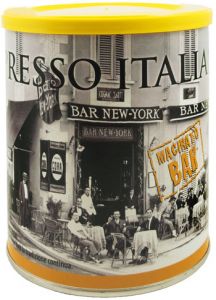
3-5 Workdays Article No. 1002
Aroma(s) : Chocolaty, Fruity
Article No. 1002
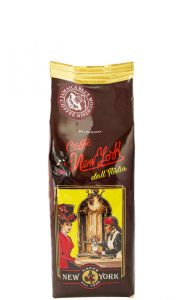
3-5 Workdays Article No. 1004
Aroma(s) : Chocolaty, Fruity
Article No. 1004

3-5 Workdays Article No. 1005
Aroma(s) : Chocolaty, Nutty
Article No. 1005

3-5 Workdays Article No. 1474
Aroma(s) : Nutty, Malty
Article No. 1474

3-5 Workdays Article No. 1293
Aroma(s) : Nutty, Floral
Article No. 1293

3-5 Workdays Article No. 1367
Aroma(s) : Nutty, Malty
Article No. 1367

3-5 Workdays Article No. 1270
Aroma(s) : Nutty, Fruity
Article No. 1270

3-5 Workdays Article No. 1094
Aroma(s) : Chocolaty, Nutty
Article No. 1094

3-5 Workdays Article No. 1095
Aroma(s) : Chocolaty, Nutty
Article No. 1095

3-5 Workdays Article No. 1283
Aroma(s) : Chocolaty, Nutty
Article No. 1283
The Ultimate Guide to Coffee Making Methods: From Classic Brews to Modern Innovations
Coffee is more than just a beverage; it’s a ritual, an art form, and a way of life for many. With a variety of brewing methods available, each offering a unique taste and experience, choosing the right one can be overwhelming. This comprehensive guide will walk you through the most popular coffee making methods, providing insights, tips, and expert advice to help you brew the perfect cup, no matter your preference.
Table of Contents

- 2. Classic Brewing Techniques
- 3. Modern Coffee Brewing Methods
- 4. Innovative and Emerging Brewing Techniques
- 5. Choosing the Right Coffee Beans for Your Brewing Method
- 6. Expert Tips for the Perfect Brew
- 7. Common Mistakes to Avoid in Coffee Brewing
- 8. The Future of Coffee Brewing: Trends to Watch
- 9. Conclusion
1. Introduction to Coffee Making Methods
Coffee is more than just a drink; it’s an experience that can be enhanced by choosing the right brewing method. Each technique brings out different flavors and textures, highlighting the unique characteristics of the coffee beans used. In this comprehensive guide, you’ll explore popular brewing methods and gain valuable tips to brew the perfect cup tailored to your preferences.
2. Classic Brewing Techniques
1.1 Drip Coffee
Drip coffee, also known as filter coffee, is one of the most widely used brewing methods due to its convenience and consistency. Hot water evenly flows through the ground coffee, extracting flavors that are collected in a carafe. This method is particularly well-suited for brewing larger quantities, making it ideal for those who enjoy a consistent and mild cup of coffee.
- Advantages: Easy to use, consistent results, can brew large quantities.
- Best For: Those who enjoy a balanced, mild flavor.
1.2 French Press
The French press is a classic tool known for its simplicity and the rich, full-bodied flavors it produces. By fully immersing coarse coffee grounds in hot water, it allows for a more complete extraction of oils and flavors. This method is perfect for coffee drinkers who prefer a robust, intense brew with a thick texture.
- Advantages: Full-bodied, rich flavor; no paper filter means more oils in the cup.
- Best For: Coffee drinkers who prefer a robust and intense brew.
1.3 Espresso
Espresso is the foundation of many popular coffee drinks, including lattes and cappuccinos. This method uses high pressure to force hot water through finely-ground coffee, resulting in a concentrated, rich shot of coffee. Espresso is favored for its bold flavor and versatility, as it can be enjoyed on its own or used as a base for other coffee beverages.
- Advantages: Rich, intense flavor; forms the base for various coffee drinks.
- Best For: Those who enjoy a strong, bold coffee or specialty drinks.
1.4 Moka Pot
The Moka pot, also known as a stovetop espresso maker, is a staple in many Italian households. It brews coffee by using steam pressure to force water through coffee grounds, creating a strong, espresso-like coffee. This method is cherished for its affordability and the rich, intense flavor it produces, making it a popular choice for espresso lovers.
- Advantages: Affordable, durable, and produces a concentrated brew similar to espresso.
- Best For: Espresso lovers who prefer a more hands-on brewing method.
1.5 Turkish Coffee
Turkish coffee is a centuries-old brewing method that offers a unique, unfiltered coffee experience. Finely ground coffee is simmered in water, often with sugar, and served directly in small cups, allowing the grounds to settle at the bottom. This method is known for its strong flavor and thick texture, making it a favorite in Middle Eastern and Eastern European cultures.
- Advantages: Unique, intense flavor; cultural and historical significance.
- Best For: Those who appreciate strong, unfiltered coffee with a thick texture.
1.6 Portafilter Coffee
Portafilter coffee is a method typically used in espresso machines, where the portafilter holds the coffee grounds and ensures even extraction under pressure. This method is crucial for producing high-quality, consistent espresso shots, which are essential in professional coffee making. It's highly valued by baristas and espresso enthusiasts for the precision and control it offers.
- Advantages: High-quality, consistent espresso; essential for professional-grade coffee making.
- Best For: Espresso enthusiasts and baristas who value precision and consistency.
1.7 Filter Coffee
Filter coffee, commonly known as drip coffee, involves pouring hot water over coffee grounds contained in a filter, allowing the water to drip through into a carafe. This method produces a clean, light-bodied coffee that highlights the subtle flavors and aromas of the beans. It's ideal for those who appreciate a smooth and easy-drinking coffee experience.
- Advantages: Clean, mild flavor; ideal for highlighting subtle coffee notes.
- Best For: Those who enjoy a smooth, easy-drinking coffee experience.
3. Modern Coffee Brewing Methods
As coffee culture evolves, modern brewing methods like the pour-over, AeroPress, and siphon have gained popularity for their ability to offer greater control over the brewing process. These methods allow coffee enthusiasts to fine-tune variables like water temperature, grind size, and brewing time, resulting in a more personalized and precise cup of coffee. They are especially favored by those who seek a clean, nuanced, and aromatic brew.
2.1 Pour-Over
Pour-over coffee has become a favorite among coffee aficionados due to the control it offers over the brewing process. By pouring hot water in a slow, circular motion over the coffee grounds, brewers can extract a clean and balanced cup. The method is appreciated for its ability to highlight the delicate and complex flavors of high-quality coffee beans, making it a go-to for those who enjoy a refined coffee experience.
- Advantages: Precise control over brewing time and temperature, clean and flavorful coffee.
- Best For: Coffee enthusiasts who enjoy a clean, nuanced cup.
2.2 AeroPress
The AeroPress is a relatively new yet innovative brewing method that has quickly gained a loyal following. It uses air pressure to push hot water through coffee grounds, producing a smooth and rich brew in just a few minutes. The AeroPress is highly versatile, allowing users to experiment with different grind sizes, water temperatures, and brewing times to create a coffee that matches their exact preferences. Its portability and ease of use make it a favorite for coffee lovers who want to enjoy a high-quality brew at home or on the go.
- Advantages: Versatile, portable, and quick; allows experimentation with grind size and brew time.
- Best For: Those who enjoy experimenting with their coffee brewing process.
2.3 Cold Brew
Cold brew coffee is made by steeping coarse coffee grounds in cold water for an extended period, typically 12 to 24 hours. This slow extraction process results in a smooth, less acidic coffee that can be served cold or hot, depending on your preference. Cold brew is known for its refreshing taste and versatility, as it can be easily mixed with milk, sweeteners, or flavors to create a variety of beverages. Its long shelf life also makes it a convenient option for those who like to prepare their coffee in advance.
- Advantages: Smooth, low-acid coffee; can be stored in the fridge for days.
- Best For: Those who prefer a cold, refreshing coffee with low acidity.
2.4 Siphon
The siphon, or vacuum pot, is a visually captivating brewing method that combines science and art. It uses vapor pressure to force water into a chamber with coffee grounds, and then gravity pulls the brewed coffee back down into a separate chamber. The result is a clean, complex cup of coffee with a delicate flavor profile. The siphon is often considered a theatrical way to brew coffee, making it a popular choice for those who enjoy both the process and the final product. It’s particularly appreciated for its ability to highlight the subtleties and nuances of specialty coffee beans.
- Advantages: Produces a delicate and flavorful coffee; a theatrical brewing process.
- Best For: Coffee aficionados who appreciate a refined and aromatic brew.
4. Innovative and Emerging Brewing Techniques
3.1 Nitro Coffee
Nitro coffee is an innovative twist on cold brew coffee, infused with nitrogen gas to create a smooth, creamy texture and a cascading, velvety head similar to that of a stout beer. Served cold, often on tap, nitro coffee is prized for its rich mouthfeel and slightly sweet flavor, even without added sugar. This method has become a popular choice in trendy cafés and among coffee enthusiasts who enjoy a unique, refreshing, and visually striking coffee experience.
- Advantages: Smooth, creamy texture; visually appealing.
- Best For: Those who enjoy a unique, creamy coffee experience.
3.2 Espresso Tonic
Espresso tonic is a refreshing and unexpected combination of a shot of espresso poured over tonic water and ice. The result is a drink that balances the bitterness of the espresso with the effervescence and slight sweetness of the tonic water, creating a complex and invigorating flavor profile. This modern coffee cocktail is perfect for those looking to try something new and is particularly popular in warmer weather or as a midday pick-me-up.
- Advantages: Refreshing and unique; combines coffee with the complexity of tonic water.
- Best For: Coffee lovers looking for a new, invigorating experience.
3.3 Nespresso Pods
Nespresso pods have revolutionized home coffee brewing by offering convenience and consistency in a compact, user-friendly package. These single-serve pods are compatible with Nespresso machines, which brew a variety of coffee styles, from espressos to lungos, with the touch of a button. Nespresso pods are available in a wide range of flavors and intensities, making them a popular choice for busy individuals who want to enjoy high-quality coffee with minimal effort and no mess.
- Advantages: Quick, easy, and consistent; wide range of flavors and strengths.
- Best For: Busy individuals who value convenience without sacrificing quality.
3.4 ESE Coffee Pods
ESE (Easy Serving Espresso) coffee pods are a standardized format that offers a convenient way to brew espresso without the hassle of grinding beans or tamping grounds. These pre-measured, individually wrapped pods are compatible with many espresso machines, making it easy to enjoy a consistent and mess-free espresso at home. ESE pods are particularly popular among those who value simplicity and consistency, as they take the guesswork out of espresso preparation while delivering a quality cup.
- Advantages: Convenient, mess-free, and consistent; ideal for espresso lovers.
- Best For: Those who enjoy espresso but prefer a quicker and easier preparation method.
3.5 Coffee Automatic Machines
Coffee automatic machines are designed to deliver café-quality coffee with minimal user intervention, making them perfect for those who appreciate convenience without sacrificing quality. These machines often come equipped with features such as built-in grinders, milk frothers, and customizable brewing settings, allowing users to create everything from a simple black coffee to a complex cappuccino at the push of a button. Automatic coffee machines are ideal for busy households or offices where a variety of coffee drinks are desired quickly and effortlessly.
- Advantages: Consistent, high-quality coffee; fully automated process.
- Best For: Coffee lovers who want a premium coffee experience at home without the effort.
5. Choosing the Right Coffee Beans for Your Brewing Method
Different brewing methods bring out different characteristics in coffee beans. Understanding the best type of beans for your preferred method can significantly enhance your coffee experience.
- Espresso: Choose dark roast beans for a rich, intense flavor.
- French Press: Opt for medium to dark roast beans with a coarse grind.
- Cold Brew: Light to medium roast beans work best to highlight fruity and floral notes.
6. Expert Tips for the Perfect Brew
5.1 Water Quality
The quality of water used in brewing significantly impacts the taste of coffee. Use filtered water with balanced mineral content for the best results.
5.2 Grind Size
 The grind size is crucial for extraction. Fine grinds are ideal for espresso, while coarse grinds are better for methods like French Press.
The grind size is crucial for extraction. Fine grinds are ideal for espresso, while coarse grinds are better for methods like French Press.
5.3 Brew Time and Temperature
Each brewing method has an optimal brew time and temperature. For example, espresso requires water heated to 90-96°C, while cold brew needs 12-24 hours of steeping at room temperature.
7. Common Mistakes to Avoid in Coffee Brewing
Even seasoned coffee brewers can make mistakes. Common pitfalls include using the wrong grind size, incorrect water temperature, and improper brewing time. Avoid these to ensure a perfect cup every time.
8. The Future of Coffee Brewing: Trends to Watch
The coffee industry continues to innovate, with emerging trends like sustainable coffee production, smart coffee makers, and personalized brewing experiences. Staying informed about these trends will help you stay ahead in your coffee journey.
9. Conclusion
With so many coffee brewing methods available, there’s something for everyone, from traditionalists to modernists. Whether you prefer the boldness of espresso, the clarity of pour-over, or the innovation of nitro coffee, understanding these methods will enhance your appreciation and enjoyment of coffee. By experimenting with different techniques and paying attention to details like water quality and grind size, you can brew a cup that’s perfect for you every time.
|
You might like also: |
External Authority Sources: |

